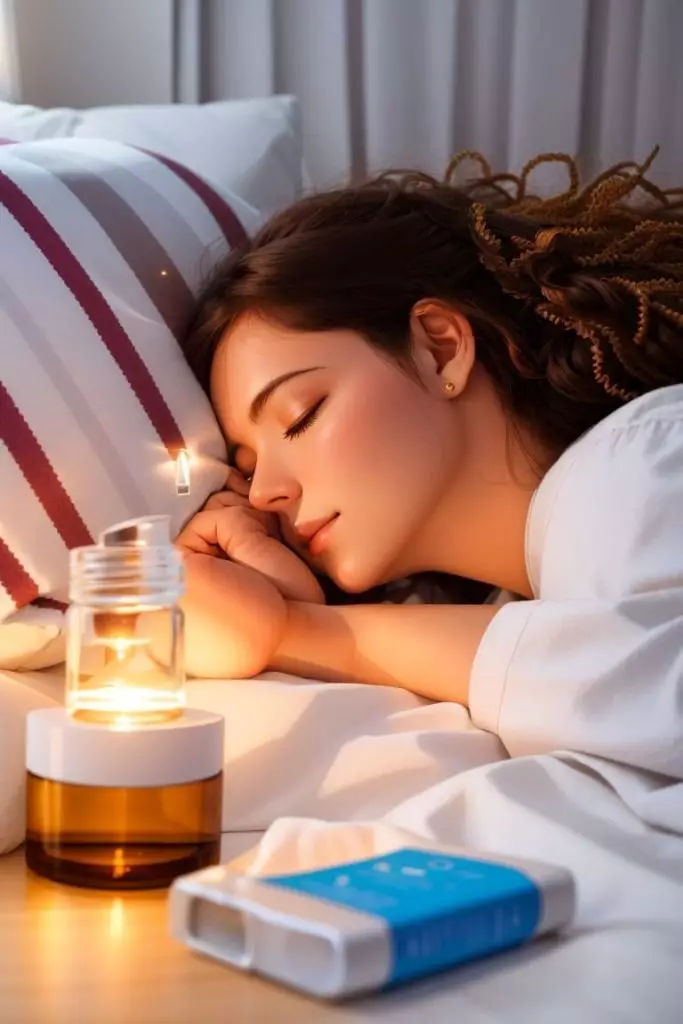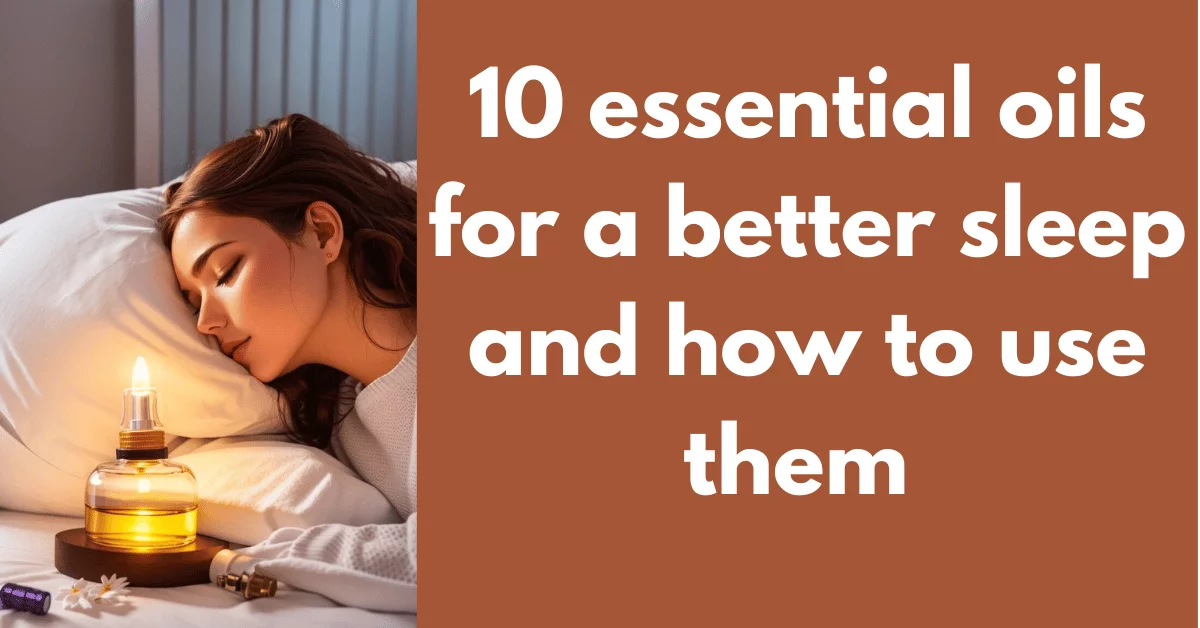The warm, soothing scent of lavender wafting from your pillow, the soft hint of chamomile enveloping your senses; these are not just pleasant experiences but strategic decisions to improve your sleep. In the sea of endless sleep aids, essential oils have emerged as natural, effective alternatives. But which ones work best? And how should they be used? Let’s explore.

The Science Behind Sleep and Essential Oils
Our bodies respond to smells on a fundamental level. In the context of sleep, certain scents have the power to trigger relaxation, guiding us towards a more peaceful slumber. This is where essential oils, distilled from plants, flowers, and herbs, come into play.
Read this – https://homescentify.com/do-essential-oils-work-for-sleep/
10 Essential Oils for Better Sleep
Lavender
Recognized for its relaxing properties, lavender can help reduce stress and anxiety, paving the way for a good night’s sleep. A few drops on your pillow or in a diffuser can do wonders.
Chamomile
Famed for its calming effects in tea, chamomile essential oil isn’t different. It helps soothe nerves and ease the mind, enabling you to drift off easily.
Ylang-Ylang
This exotic oil is known to balance emotions and promote a sense of peace, making it a perfect pre-bedtime aroma.
Bergamot
A citrus oil unique for its calming properties, bergamot can lower heart rate and blood pressure, preparing your body for sleep.
Sandalwood
With a rich, woody scent, sandalwood oil has a grounding effect that promotes deep sleep. However, responses can vary, so it’s worth experimenting with.
Clary Sage
Not to be confused with common sage, clary sage has sedative properties and can reduce hormone-induced insomnia.
Marjoram
Known for its warm, soothing properties, marjoram oil is excellent for sleep as it helps reduce tension and anxiety.
Cedarwood
This oil has a earthy scent and can stimulate the production of melatonin, the sleep hormone.
Vetiver
A complex, grounding scent, vetiver oil can help quiet a racing mind, helping those who struggle with falling asleep.
Jasmine
Despite its delicate floral scent, jasmine has potent sleep-promoting properties, comparable to certain pharmaceuticals.
Precautions When Using Essential Oils
Remember, while natural, essential oils are potent. Always dilute them with a carrier oil before applying topically. Avoid contact with eyes, and store them out of children’s reach.
How to Use Essential Oils for Sleep
Inhaling the scent is the simplest way to use essential oils. You can add a few drops to a diffuser, a warm bath, or even dab a little on your pillowcase. However, each person reacts differently, so it’s best to try various methods and oils to find what works best for you.
Learn more about home aromatherapy for better sleep
Moving On
Sleep is as essential to us as the air we breathe. And in our quest for better sleep, essential oils can be potent allies. From the soothing scent of lavender to the grounding aroma of vetiver, these oils hold the potential to transform our nighttime routine into a deeply restorative experience. So, why not give them a try?
FAQs
Can essential oils be used for children’s sleep? Yes, but with caution. Always use a lower concentration and choose child-safe oils like lavender and chamomile.
Are there any side effects of using essential oils for sleep? Side effects are rare but can include allergic reactions or skin irritation, especially if oils are used undiluted.
Can I apply essential oils directly to my skin? No. Always dilute essential oils with a carrier oil before topical application to avoid irritation.
How long does it take for essential oils to work for sleep? The effects can be almost immediate, but consistency and routine are key for long-term benefits.
Can I use multiple essential oils together for sleep? Yes, many oils blend well and can enhance each other’s benefits. However, research and experiment to find the best blend for you.
